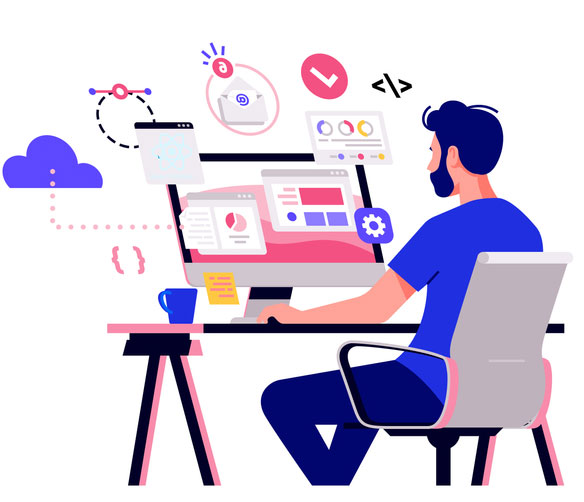At 24×7 Internet Technologies Pvt Ltd, we frequently receive this question. As one might expect, the answer isn’t always straightforward. The choice of coding often depends on your interests and the purpose you intend to achieve with your skills.
Keeping up with the fast-paced advancements in technology involves staying informed about the most relevant programming languages. Understanding the top programming languages is essential for developers, businesses, and technology enthusiasts alike.

Mastering a new programming language involves several key steps to ensure proficiency and effectiveness in its application
Learning a new programming language, especially if you’re already familiar with the current ones, can be quite overwhelming. We get it- jumping feet first into something entirely unknown is a challenging task. That’s why we’ve compiled this guide to assist you on your journey into learning programming languages:
Select your next programming language to learn thoughtfully:
Choosing the right language can be challenging due to the vast number of languages available. Before selecting a random option, consider the following questions:
1- In what language are the job postings you wish to request?
2- Does the language you’re interested in using work with the operating systems you are familiar with?
3- Are you genuinely interested in the programming language?
4- How steep is the learning curve for the programming language?
Let’s outline a roadmap for learning:
To effectively learn a programming language, it’s essential to create a comprehensive learning plan, including finding resources for assistance in case of difficulties or choosing an open-source or widely-used programming language for online assistance. This will guarantee a more efficient and smooth learning experience.
Start Practicing:
Practice makes perfect, especially in coding. Learn the theoretical foundations of the programming language and start practicing as soon as possible to become familiar with the language’s workings and any differences from other languages.
Be Patient:
Learning programming languages, especially those using a different framework, can be challenging. To overcome this, be patient, set realistic goals, and regularly check-ins to ensure you’re on track.
What are the best programming languages for beginners in 2024 and beyond?
The top programming languages for beginners in 2024 and beyond include:
Golang:
Go, renowned for its simplicity and performance, is gaining popularity in cloud computing and backend development due to its user-friendly nature.
HTML/ CSS:
HTML and CSS are fundamental tools for web development, used for creating and styling web pages.
Python:
Python, renowned for its simplicity and versatility, is widely used in web development, data science, and automation due to its user-friendly nature.
Javascript:
JavaScript is a crucial component in web development, providing interactive website features and serving as a solid foundation for front-end development.
Swift:
Swift, developed by Apple, is a beginner-friendly tool that enables businesses to fully utilize iOS app development for growth.
Here are some choices for learning a new programming language:
Bootcamp-
Bootcamp courses are a streamlined, accelerated method of learning to code, typically lasting a week or two months, often offered by companies and universities to expedite the process.
Degree programs-
Computer science and engineering degree programs often incorporate programming coursework, exposing students to valuable software skills such as web development and hardware applications.
The Top 10 Most In-Demand Programming Languages
Our investigation into the most sought-after programming languages is based on job postings in India. The demand is evaluated by the total number of job listings requesting each language on LinkedIn Jobs and Indeed.com. Since LinkedIn shows a higher number of job postings for each language, we rely on LinkedIn’s figures in our findings.
Top Programming Languages in Demand for 2024
C
C#
.Net
Python
Java
C++
Javascript
Typescript
Android
Perl

